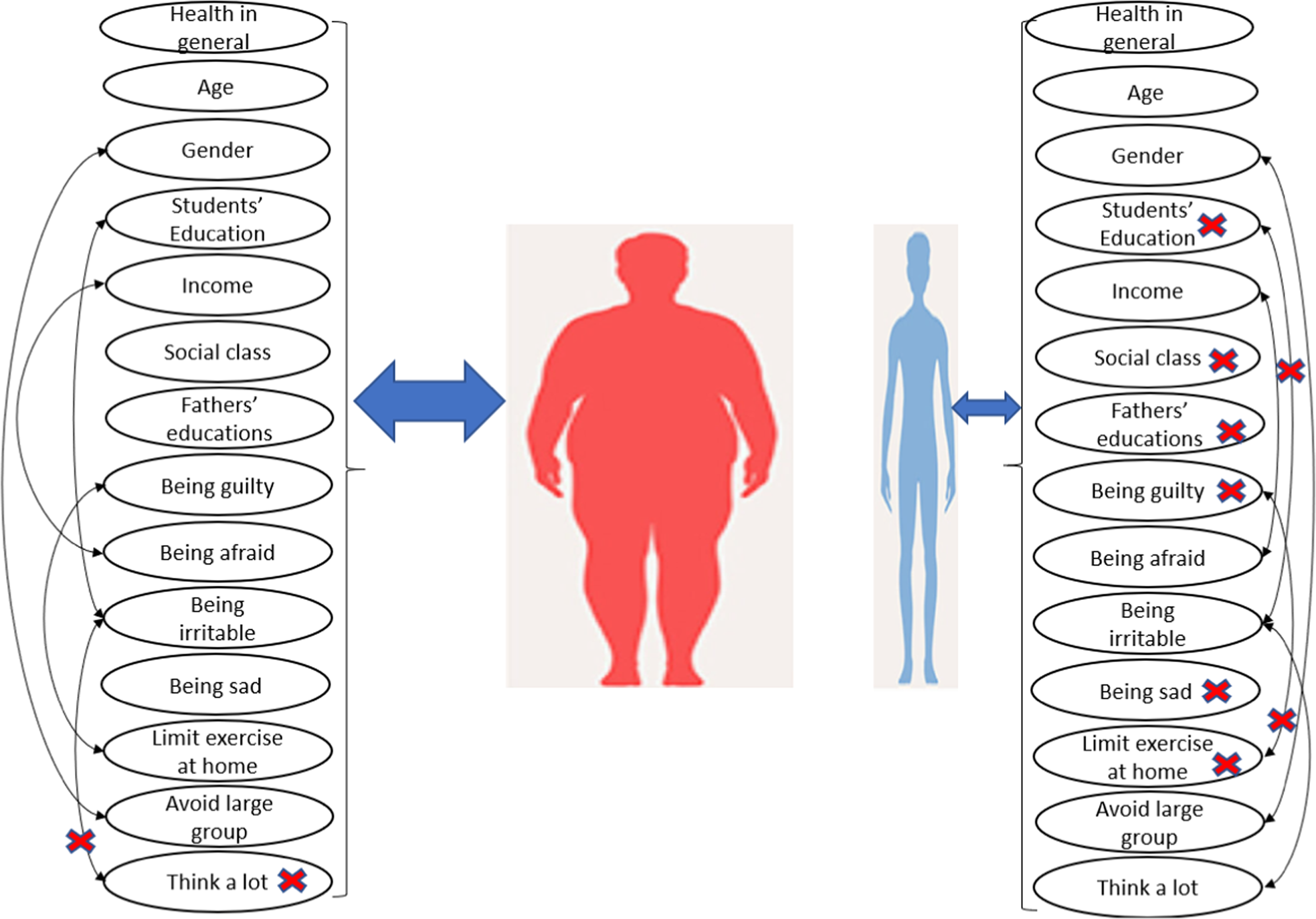:max_bytes(150000):strip_icc()/stressedman-cbf6c8900b954de2b933018b6ae06ae3.jpg)
Work can be one of the most common places to feel stressed. This is due to the pressure built up due to extra work or deadlines due to improper time management. Work-related stress is most commonly people’s reaction due to the excessive pressure or demand placed upon them. According to the American Institute of Stress, job-related stress is the top source of stress for American adults, with 80% of workers reporting feeling stressed on the job. Growing up and feeling that you need to earn your own money and take care of yourself, everyone goes through this phase. Work always brings stress, but what matters most is how you can handle it. While most fail to cope with work-related stress, it adversely affects their work and daily life. This is the difference between an intelligent and an average worker. An intelligent employee would try to learn new ways to tackle workplace stress. Rest assure! In this blog, we will guide you on the nine ways to handle stress at work and the topics that follow related to stress at the workplace.
Table of Contents
Employers’ Responsibilities
Employers must respect their duty under common law to take appropriate steps to ensure their employees’ positive well-being. There is no particular law that dictates any regulations regarding workplace stress. But under the Health and Safety at Work Act, it is the responsibility of an employer to take into account the health, safety, and welfare of their staff, and this also includes work-related stress.
The first and foremost step of establishing a stress-free work environment is identifying and mitigating the root cause. It is the responsibility of an employer to carry out a stress risk assessment, which would help assess the risk of workplace stress. Conducting a stress risk assessment brings many benefits, like legal compliance and cost benefits, such as reduced working days, replacement staff, and increased productivity. It will help improve communication among colleagues and manage possible risks.
How can you, as an employer can help reduce stress?
- Setting clear goals for your employees – By setting clear goals, your workers can plan their calendars to achieve that particular goal. This would massively reduce the stress on their shoulders and allow them to work freely and flexibly.
- Better recognition – Employees feel more encouraged and engaged when recognized or applauded for their work.
- Be a resource – Give your employees what they need to perform their job fluently. Not providing your employees with appropriate resources would cause them to be stressed and mess things up further.
Causes of work-related stress are:
- Overload of work or deadlines
- Bullying at work
- Lack of support and teamwork
- Lack of communication
- A bad working environment
- Lack of recognition or reward
Other outside influences on stress include:
- Bereavement
- Relationship issues
- Disability
What are The Nine Ways To Tackle Stress At Work?
1. Identifying The Sources Of Your Stress
The best way to reduce stress could be to find the source of your mental illness and put a stop to it. Take some time to reflect on what’s causing you to feel stressed. Is it a heavy workload, a demanding boss, or conflicts with colleagues? Once you know what’s triggering your stress, you can take steps to address it.
For example, suppose you’re feeling overwhelmed by your workload. In that case, you may need to prioritize your tasks or delegate some of your responsibilities to others. If you’re having conflicts with colleagues, you may need to have a difficult conversation or seek mediation.
2. Take Breaks
When you’re feeling stressed, it can be tempting to work non-stop in an effort to get everything done. But taking regular breaks can actually help you be more productive. Taking a short break every hour or two can help you relax and recharge, so you can come back to your work with renewed focus and energy.
Try taking a short walk, doing some stretching, or practising deep breathing exercises during your breaks. Even just a few minutes of relaxation can help reduce stress and improve your overall well-being.
3. Prioritize Your Tasks
One of the major sources of stress at work can be having too much to do and coming deadlines but needing more time to do it. To manage this stress, try focusing on your tasks and rank them accordingly to their priority and urgency. This will help you focus on the most critical tasks first, so you can reduce the stress of feeling overwhelmed by everything you need to do.
Make a list of your tasks and prioritize them based on factors like deadlines, importance, and the amount of time required. Then, focus on completing the most critical tasks first before moving on to less important tasks.
4. Practice Mindfulness
Stress can be overwhelming, but it teaches a person a lot. Actively watching your work and thoughts in the present time can help you calm and make sense of stressful situations, despite the fact that it may seem counterintuitive.
Occasionally, you might prefer to shift your focus from being productive to being attentive at work. This change in attitude would allow you to take a break from work and understand your responsibilities with a new sense of enthusiasm and commitment. This strategy can definitely make it easier for you to Manage stress at work.
5. Practice Good Time Management.
Poor time management can lead to stress and anxiety. A worker who’s poorly managing their work would struggle to fulfil the demands and complete their tasks.
Try blocking out time on your calendar for specific tasks or projects, and set reminders for important deadlines. Use a to-do list to keep track of everything you need to do, and prioritize your tasks based on their importance and urgency. By managing your time more effectively, you can reduce the stress of feeling like you’re always playing catch-up.
6. Ask for Help
Asking for help and talking to your colleagues can be a great initiative to reduce work-related stress. Communication is the key to identifying solutions and reducing stress.

Consider scheduling a meeting with your supervisor to discuss your workload or any other concerns you may have. Be clear and specific about what’s causing your stress, and work together to identify solutions. If you’re having conflicts with colleagues, consider seeking out mediation or talking to a human resources representative for support.
7. Practice Self-care
In today’s fast-paced work environments, it’s easy to get caught up in the daily grind and forget to take care of ourselves. However, neglecting our own well-being can lead to burnout, exhaustion, and increased stress levels. Practising self-care can help you feel more balanced, centred, and in control, which in turn can help you manage work-related stress more effectively. Engaging in self-care activities like exercise, healthy eating, meditation, or spending time with loved ones can help you recharge your batteries and feel more resilient in the face of work-related stressors.
8. Taking Advantage of Resources
Taking advantage of resources can be an effective way to reduce stress at work. Many workplaces offer resources such as employee assistance programs, wellness initiatives, and mental health support services that can help employees manage stress and improve their overall well-being. By utilizing these resources, employees can get the support they need to navigate work-related stressors and maintain a healthy work-life balance.
9. Take Appropriate Training
One of the most influential ways to cope with mental health-related disorders, such as stress and anxiety, is by getting the appropriate training. It is vital to understand that there are many situations in life that too outside work where an individual can experience mental health issues and may not be aware of how to treat the mental illness. Therefore, training plays a crucial role in educating a person on mental health issues and how a person can assess and tackle them. Mental health courses like resilience training can be an effective way to reduce stress at work. Resilience training can teach employees skills and strategies to build their resilience, such as mindfulness practices, cognitive restructuring, and problem-solving techniques. By building resilience, employees can better cope with the demands of their job and navigate work-related stressors more effectively.
Conclusion
In conclusion, there are many effective ways to handle stress at work. By taking steps to manage your workload, build supportive relationships, and prioritize self-care, you can reduce stress and improve your overall well-being. It’s important to identify the specific causes of your stress and develop a plan that works for you. Whether it’s practising mindfulness, taking breaks, or seeking support from your employer, there are many resources available to help you manage stress at work. By implementing these strategies, you can take control of your stress levels and feel more empowered to navigate the demands of your job. Remember, managing stress is an ongoing process, and it’s important to prioritize your own well-being and take steps to manage stress regularly. By doing so, you can thrive in your job and achieve your professional goals while maintaining a healthy work-life balance.


:max_bytes(150000):strip_icc()/hypersexuality-f7219c0faf93488b82402d4f9d20e454.jpg)


